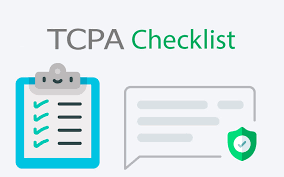Introduction
In an era dominated by digital communication, businesses are constantly seeking innovative ways to connect with consumers. However, amidst the vast landscape of marketing strategies, one must tread carefully to avoid legal pitfalls. The Telephone Consumer Protection Act (TCPA) stands as a crucial safeguard, regulating the use of telemarketing calls, text messages, and faxes. As businesses adapt to evolving technologies, understanding and complying with TCPA consent rules is imperative to maintain a seamless and lawful customer communication strategy.
Understanding TCPA and Its Evolution
Enacted in 1991, the TCPA was initially introduced to curb the rising tide of unsolicited and intrusive telemarketing calls. Over the years, the scope of the TCPA has expanded to encompass new technologies, reflecting the changing landscape of consumer communication. Today, the TCPA remains a cornerstone of consumer protection, guarding against unwanted solicitations and promoting privacy in an increasingly interconnected world.
Consent in the TCPA Context
At the heart of TCPA compliance lies the concept of consent. Obtaining consent is a fundamental requirement for businesses engaging in telemarketing activities covered by the TCPA. Consent serves as a legal shield, protecting businesses from potential litigation and ensuring that consumers have control over the communication they receive.
Express vs. Implied Consent
TCPA consent can be categorized into two main types
express and implied consent. Express consent is explicit, clear, and unambiguous permission given by the consumer to receive telemarketing communications. This often involves obtaining written or oral agreement, and businesses must maintain records of such consent to demonstrate compliance.
On the other hand, implied consent is based on the existing relationship between the business and the consumer. For instance, if a customer provides their phone number during a transaction, it may imply consent for the business to contact them regarding similar products or services. However, businesses must exercise caution and ensure that the scope of implied consent is clearly defined and understood by the consumer.
Revoking Consent
One critical aspect of TCPA compliance is recognizing the consumer’s right to revoke consent. Even if a business initially obtains consent, consumers have the right to change their minds and opt-out of further communications. It is essential for businesses to establish clear and accessible mechanisms for consumers to revoke their consent, such as through opt-out mechanisms in text messages or automated phone calls.
Prior Express Written Consent
In certain scenarios, the TCPA mandates the collection of prior express written consent. This heightened form of consent is required for specific types of communications, including pre-recorded voice messages, autodialed calls, and unsolicited faxes. Businesses must ensure that the consent obtained is not only written but also includes specific disclosures regarding the nature and frequency of the communications.
Key Considerations for TCPA Compliance
Recordkeeping
Maintaining accurate and up-to-date records of consent is a cornerstone of TCPA compliance. Businesses should implement robust systems to capture and store consent data securely. These records serve as vital evidence in the event of legal challenges, demonstrating that the business obtained valid consent.
Regular Consent Audits
As business relationships evolve and consumer preferences change, conducting regular consent audits is crucial. Businesses should review their consent records periodically to ensure that they align with current regulations and accurately reflect the preferences of consumers.
Clear Communication
Transparency is key when communicating with consumers. Businesses must provide clear information about the purpose of their communications, the frequency of messages, and the methods through which consumers can opt-out. Clarity not only fosters trust but also ensures compliance with TCPA requirements.
Technology and Compliance
In an age where technology plays a central role in communication, businesses must leverage technological solutions to enhance TCPA compliance. This includes implementing systems that can manage consent records, automate opt-out processes, and ensure that communications adhere to TCPA guidelines.
Training and Education
Ensuring that employees are well-versed in TCPA compliance is essential. Training programs should cover the basics of consent, the importance of recordkeeping, and the procedures for handling opt-out requests. Well-informed staff is a critical line of defense against inadvertent violations.
Legal Counsel
Given the complexity of TCPA regulations, seeking legal counsel is a prudent step for businesses. Legal professionals specializing in telecommunications law can provide tailored advice, conduct compliance assessments, and offer guidance on navigating the intricacies of TCPA consent rules.
Challenges and Emerging Trends
The landscape of consumer communication is dynamic, and businesses must remain vigilant to emerging challenges and trends that may impact TCPA compliance. Some key considerations include:
Emergence of New Communication Channels
With the proliferation of social media, messaging apps, and other digital platforms, businesses must assess how TCPA regulations apply to these channels. As communication methods evolve, staying ahead of the curve ensures that businesses remain compliant with emerging standards.
Cross-Border Communications
For businesses operating internationally, navigating the patchwork of global privacy and communication regulations is a complex task. Understanding how TCPA rules interact with international laws is crucial to maintaining a compliant global communication strategy.
Data Security and Privacy Concerns
As data breaches become more prevalent, consumers are increasingly concerned about the security of their personal information. Businesses must not only comply with TCPA regulations but also prioritize data security and privacy to build and maintain consumer trust.
Artificial Intelligence and Automation
The integration of artificial intelligence and automation in telemarketing introduces new considerations for TCPA compliance. Businesses must ensure that automated systems adhere to consent rules and provide mechanisms for consumers to interact with and control these systems.
Conclusion
TCPA consent rules play a pivotal role in shaping responsible and ethical telemarketing practices. Businesses that prioritize compliance not only mitigate legal risks but also foster positive relationships with consumers based on trust and respect for their privacy. As technology continues to advance and consumer expectations evolve, staying informed and proactive in adapting to regulatory changes is essential for navigating the complex landscape of TCPA compliance.
